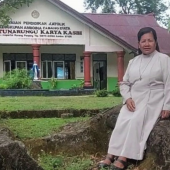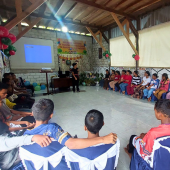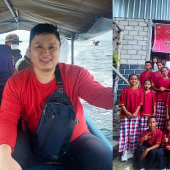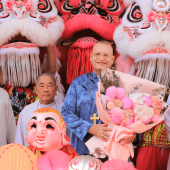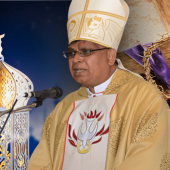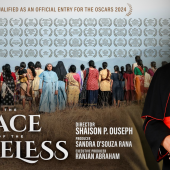Indonesian Bishop: Protect children from the detrimental effects of modernization
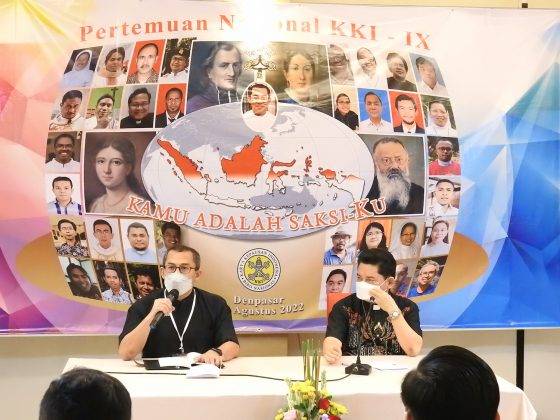
An Indonesian bishop has called for the protection of children from the harmful impacts of modernity.
Bishop Silvester Tung Kiem San of Denpasar (Bali), Indonesia, said the assault of modernization and globalization characterized by advancements in communication and information technology had many detrimental effects on humanity, including children. Therefore, it is necessary to protect youngsters from the damaging influences of modernity.
He conveyed the message at the opening of the IXth National Meeting (Pernas) of Indonesian Pontifical Work (KKI), held in Bali, August 4–7.
The diocesan directors of KKI throughout the country participated in the conference.
"The negative effects of modernization include many youngsters with instant personality and mindset. Cell phones make children unmotivated to learn, pray, and play with friends. Some tend to become greedy and indifferent to others," he said.
"To some extent, parents contribute to the problematic tendencies by allowing it to serve as a sedative for their children, who then spend a great deal of time playing on social media," the bishop bemoaned.
Nevertheless, he added that the development of communication technology also provides many conveniences, such as easy access to information.
"However, if children use communication technologies to seek knowledge, it is unquestionably beneficial for their education. Therefore, there should be monitoring and role models for parents to use social media wisely," he stressed.
The prelate highlighted that the church's mission is to protect children from the ill effects of modernization. Therefore, the pastoral ministry of children is vital, including through the founding of the Pontifical Union for Missionary Children (Sekami).
The Pontifical Union for Missionary Children teaches children of all ages about the missionary spirit and how to help children their own age all over the world through prayer and small material sacrifices. They are encouraged to see Jesus in them.
The Pontifical Society of the Holy Childhood Association was established in Nancy, France in 1843 with the mission of drawing children's attention to the spiritual and material needs of children worldwide through prayers and sacrifices.
On February 28, 1926, Pope Pius XI recognized this work as "pontifical" in his Encyclical Letter Rerum Ecclesiae. In his Apostolic Letter Praeses Consilio (December 4, 1950), Pope Pius XII established the annual Holy Childhood Day.
"Through the Sekami platform, we seek to instill moral values in our youngsters. Through Sekami, we also hope there will be a specific calling to become priests, monks, and nuns, as well as an understanding of the significance of rejuvenating Sekami's companions," the Bishop said.
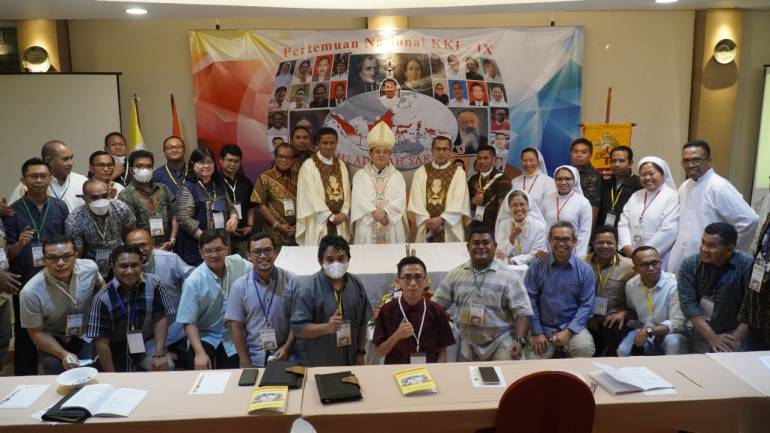
The bishop urged the Sekamis' directors to free the hearts of children from the grip of globalization and modernity.
"We must liberate the hearts of children from globalization and modernization; children are miniature missionaries who bring hope to the church's bright future," said the prelate.
He directed those in charge of Sekami to work with the Family and Social Communication Commissions to help children use social media responsibly.
The National Conference for Sekami's Directors featured a variety of speaker presentations, including the results of a critical study and review of research on the work of the Indonesian papacy and the protection and fulfillment of children's rights through a child-friendly Catholic Church.
The Indonesian Bishops' Conference (KWI) has recognized the vital role of the Indonesian Pontifical Work (KKI) in instilling missionary zeal in the hearts of all Indonesian Catholics (Kasmir Nema).
Radio Veritas Asia (RVA), a media platform of the Catholic Church, aims to share Christ. RVA started in 1969 as a continental Catholic radio station to serve Asian countries in their respective local language, thus earning the tag “the Voice of Asian Christianity.” Responding to the emerging context, RVA embraced media platforms to connect with the global Asian audience via its 21 language websites and various social media platforms.









